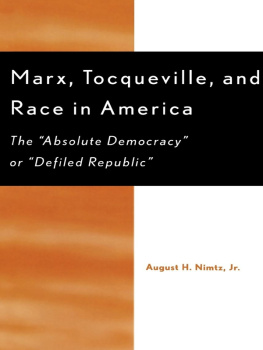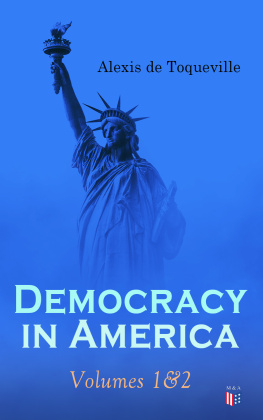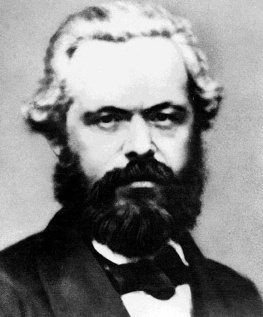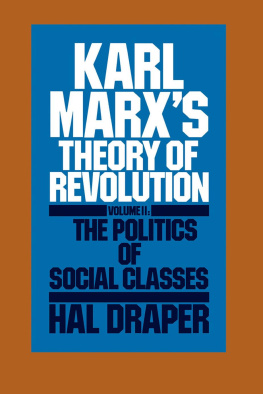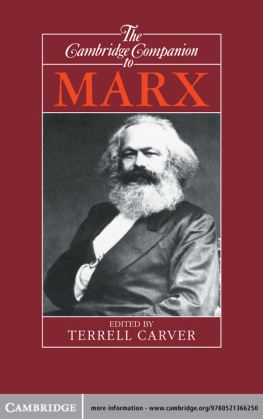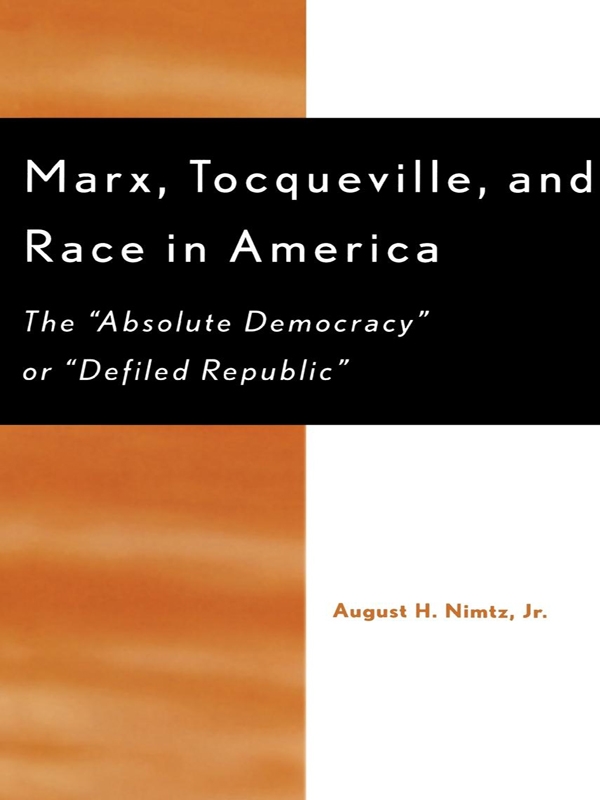Appendix
Thomas Messer-Kruses, The Yankee International
Recent Adventures in Gratuitous Marx-Bashing
Where the working class is not yet far enough advanced in its organization to undertake a decisive campaign against the collective power, i.e. the political power, of the ruling classes, it must at any rate be trained for this by continual agitation against, and a hostile attitude towards, the policies of the ruling classes. Otherwise it remains a plaything in their hands.
Marx to Bolte in New York, 1871
Is it true that the failure of the U.S. labor movement to take up the cause of racial equality after the overthrow of the slavocracy was due largely to the machinations of Karl Marx and his cothinkers in America? This is the most important of the charges that Thomas Messer-Kruse makes in his book, The Yankee International: Marxism and the American Reform Tradition, 18481876, (1998). As such, its of major relevance for this book and, thus, necessary to address in a serious and detailed manner. Messer-Kruses claims are not just of historical significance. The charges he raises speak to one of the central questions in the fight for racial equality and, therefore, real democracy today: to what extent should that struggle prioritize the role of the working class and their organizations, specifically, trade unions? His book is also an example of why it is so important to understand the depth of Marxs understanding of the U.S. reality.
As part of his central thesis, Messer-Kruse argues that in the immediate aftermath of the Civil War the possibility of a true union between those whose long fight against slavery had instilled in them the most egalitarian view of race and sex of their time and those whose resistance to the coming industrial order had shaped a native radical labor ideology promised to create a new powerful synthesis of reform ideas. For a brief moment this promise embodied itself in a section of the U.S. branch of the International Workingmens Association (IWMA), or, First International. The highest expression of that possibility, he argues, was Section 12 in New York City or what he calls the Yankee International, exactly because it more than any other local embraced these two native traditions, the egalitarians and radical labor activists. This promise came, however, to a premature end after about only a year and for reasons that have to do with the perspective and actions of Marx and his comrades, especially the German Americans in New York.
According to Messer-Kruse, Marx never understood or was really interested in the liberal republican tradition of America and, thus, didnt appreciate what the Yankee Internationalists brought with them to the IWMA. Unlike their Internationalist immigrant Marxist comrades, who, because they had complete faith in the efficacy of Marxist theory to comprehend and analyze any given social-political-economic moment, tended to believe that there was but one true line of socialist progress, these descendants of the native radical tradition believed that all reform proposals represented different means to similar ends. Marx, on the other hand, Messer-Kruse claims, was driven by his historical materialist method that required him to fit the U.S. reality into a preconceived global schema and it was that view that he imparted to his German American comrades in the U.S. branch of the international led by Frederick Sorge. Anything that weakened British imperialism and assisted the proletarian revolution in England was for Marx an advance in the worldwide class struggle of producers and no development to this end was as important as that of the Irish movement for self-determination.
In urging the German Americans to reach out to the Irish workers in New York, who were more conservative on race and gender issues, but a potential thorn in Londons side across the Atlantic, Marx, alleges Messer-Kruse, objectively undermined the promise represented by the Yankee Section 12. The latter, as inheritors of the progressive native tradition on race and sexual equality, were increasingly seen as an obstacle to attracting the Irish workers. Marxs Irish strategy led to great mischief in America. Because of the rivalries and racial hatreds that had grown up between the Irish and African American communities in New York, Marxs approach encouraged Sorge and his comrades to turn their backs on their own internationalist principles of human brotherhood and ignore the needs of their potential black constituency.... Marxs Irish strategy further deepened the divisions between Sorges Marxists and the libertarian Yankees.
That Section 12 was quite middle class and professional in composition and headed by Victoria Woodhull, the well-known proponent of womens rights, was also, according to Messer-Kruse, problematic in forging the promising alliance. The great emphasis that the Sorgean leadership placed on trade union work, also at Marxs urging, reinforced the orientation to Irish workers who tended to be disproportionately trade union activists. The conservative position of the trade unions on womens equality once again led the Sorgeans to distant themselves from Section 12. Marxs followers, informed by his alleged depreciation of liberal republicanism and his Irish strategy, increasingly saw the Yankee Internationalists as incompatible with what they understood was his vision of the International in America and, hence, carried out a successful campaign to exclude them from the organization. Messer-Kruse accuses Marx of complicity in this effort in both New York in the fall of 1871 and the later congress of the International at the Hague in September 1872.
Thus, the ouster of the Yankee Internationalists deprived the future labor movement of the benefits of a native tradition that combined the struggle for both economic and social rights. Because, in Messer-Kruses view, of what Marx and his followers had done, the goals of civil rights and political liberty were loosened from those of economic equality and social justice in the subsequent trajectory of the U.S. reform movement. For labor specifically, the orientation of the Sorgeans resulted in an apolitical labor movement that began with the American Federation of Labor (AF of L) and continues until today. The father of this outcome, Samuel Gompers, was, according to Messer-Kruse, a direct product of the Sorgean perspective. This also explains, in his opinion, the failure of the labor movement to embrace the Civil Rights and Womens Rights movements of the 1960s and 1970s. In the long run, the institutional absence of the Yankee Internationals focus on the principles of republican liberty, civil rights, and human equality made it possible for the early American left to abandon racial minorities and women.
Sorges actions, therefore, go a long way in answering the age old question, Why is there no socialism in America? A truly American version of socialism, Messer-Kruse argues, would have to figure out how to combine republican traditions and social equality. Marx and Sorge had no interest in the question and chose to cynically dismiss such concerns as so much petty bourgeois humbug... Had... Yankee socialist ideology been allowed to become the face of American socialism, it would have... perhaps even made American socialism far less exceptional than it once seemed. Not only then did Marx and Sorges actions undermine the emergence of a progressive American labor movement but they, ironically, obstructed a solution to American exceptionalism.
For reasons obvious to anyone who understands the claims I make in the preceding chapters of this book, Messer-Kruses charges are indeed serious and require careful and thoughtful response. There is not sufficient space here to take up the other charges that he levels at Marx and his partner Engels. None of those are new, including such hoary allegations that Marx operated in a manipulative and undemocratic fashion within the IWMA; that he mistreated his onetime comrade Georg Eccarius who figured significantly in the events of his book; that his alleged eurocentrism predisposed him to disdain Asian peoples; or that he sprinkled his original German texts with the English words poor whites and niggers. I have in fact either addressed and / or disputed all of these in other placesincluding this bookor pointed to where a convincing response can be found. The task here is to respond to the above-listed charges, specifically as they relate to the central claims of my book. To do so it is necessary to distinguish between those that speak explicitly to Marx and those directed to Sorge; responding to the accusations against the former has priority. On occasion, when appropriate, Engels will be brought into the conversation. Rather than take up every detailed claim, the intent here is to focus on the most significant charges.

